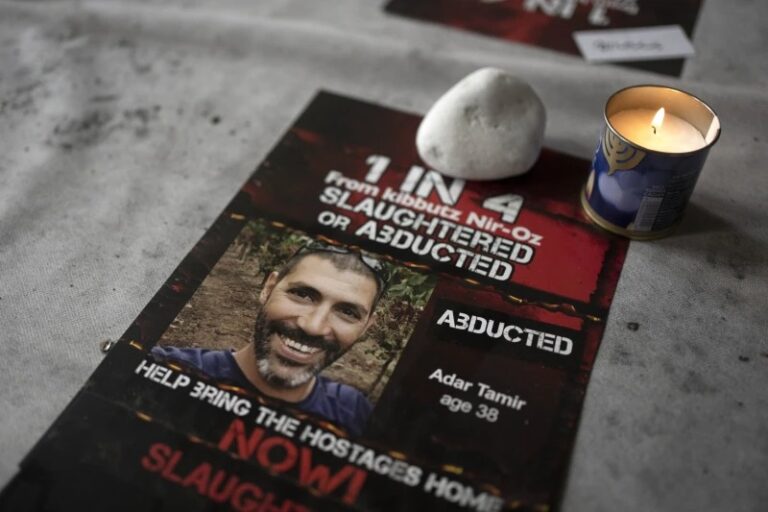 A new organization, founded by orthodox Jews, made the “mistake” of paying for an advertisement in multiple Jewish newspapers, including the Forward, seeking a live donor for a kidney to save someone’s life.
A new organization, founded by orthodox Jews, made the “mistake” of paying for an advertisement in multiple Jewish newspapers, including the Forward, seeking a live donor for a kidney to save someone’s life.
Seth Cohen MD (Forward, Letters, October 8th) of Westchesterr waxed indignant against our rabbis and the haredi community for what he calls their refusal “to endorse halachic procedures to take organs from either normal living or brain-dead people to heal chronically ill patients.” The secular newspaper Forward declined to publish my letter in reply and Rabbi Shafran’s letter, and Rabbi Shafran apparently wrote a column to more broadly address the charges raised by Dr. Cohen.
Jeffrey Miller (5TJT, letters, December 3), in reply to Rabbi Shafran’s column, argues that “those who would accept an organ but would not donate the same organ are hypocrites.”Mr. Miller then raises the issue of live-donor kidney transplantation. Apparently with regard to someone who is unwilling to donate a kidney, Miller claims that “the halachic principle of lifnai iver (putting a stumbling bock before a blind person) would certainly preclude him from accepting a kidney.” He then states that, if Rabbi Shafran would counter that pikuach nefesh takes precedence when accepting an organ, then he must explain why it doesn’t take precedence when [one is] asked to donate as well.”
Since Rabbi Shafran apparently was not provided with a copy of Miller’s letter prior to publication, and he is a very busy man, allow me to attempt a response, based in part on my recent participation at a session on Thanksgiving Day entitled “Modern Medical Mores and Halacha: Are They Truly Irreconcilable?” This public session was held at the recent Agudath Israel national conference. (Friday morning, a closed-door session open only to speakers and rabbinic leaders of Agudath Israel including members of the Moetzes Gedolei HaTorah was held, and I shall not discuss that meeting here, except to note that our leading halachic authorities are well aware of the quasi-halachic arguments of Mr. Miller and others, and the public policy ramifications with the outside world.).
The issues surrounding organ donation are complex, yet in over a dozen years of personal interactions with Israeli chief rabbis and other leading rabbinic authorities of Orthodox Jewish law from across the Orthodox spectrum, I have never encountered a single rabbi who is against organ donation from live donors such as kidney donations. It is simply libelous to assert otherwise.
With regard to “brain-dead” patients, there is an ongoing controversy as to whether vital organs may be removed from such individuals, based on definitions of death. This controversy is not limited to orthodox Jewish circles but also includes, among others, scholars of Buddhism, and secular philosophers, as well as some leading scientists.
Dr. Cohen claimed that “it is unseemly and cynical to recruit potential donors when there is no theoretical potential for paying the good deed forward.” Does he mean to suggest that the potential recipient of a kidney should be denied a life-saving organ simply because an organization trying to save this person’s life happens to have been founded by Orthodox Jews, an organization that tries to provide organs without respect to whether the recipient is an orthodox Jew? That a child whose parents’ religious beliefs do not allow them to accept “brain death” as death should not receive an organ that was taken from a “brain dead” person? If so, he is calling for outright discrimination. Organ donation has always been based on medical need, not on discrimination. Organs are not open for barter.
Mr. Miller labels as hypocrites those among us who follow the halachic decisions, on life-and-death matters, of any of the very many halachic authorities, in camps ranging from Y.U. to Eidah Chareidis, who reject “brain death” (either because of the inconvenient fact that a percentage of patients labelled “brain death” may very well have some remaining brain function, or because of other reasons too complex to summarize in this format).
They are hypocrites, Mr. Miller argues, because they are morally opposed to donation, and won’t give the organ they then wish to receive. Here, he misunderstands how an orthodox Jew mush deal with a shaila (question concerning Jewish law) and how he must respond to the teshuva (answer) given to him. The layman has no religious choice but to obey the halachic authority. One is not permitted to go “rabbi hopping” after getting an undesirable answer until he finds some rabbi who will provide the answer he desires. To do that would be the mark of a religious hypocrite. I can assure Mr. Miller that the religious scholars involved in these matters have given much thought to the public policy implications, for many years, including appearances of impropriety, hypocrisy, and worse. Centenarians like Rav Elyashiv were aware of concepts like mip’nai eivah well before some of our parents were born!
In addition, they realize fully that a decision not to permit vital organ removal from a “brain dead” patient may very well result in the death of a critically ill countryman in Israel and elsewheren, in immediate need of that organ.
Notwithstanding these pressing concerns, their firm belief that “brain death” does not constitute death from a halachic point of view precludes them from urging followers to donate vital organs, such as heart and lungs, before all criteria they deem necessary for death to ensue are achieved. Why? Because while saving a Jewish life is one of the most cardinal principles in Judaism, overriding such laws as Yom Kippur and Shabbas, killing someone to save another life is simply not acceptable.
Furthermore, in contrast to what Mr. Miller opined, this is strictly a question of Jewish law (halacha), although it touches upon a moral issue. Let’s consider the six stages of moral development as conceptualized by the renowned Lawrence Kohlberg, wherein stages 3 and 4 are considered on a high moral plane than stages 1 and 2, whereas stages 5 and 6 are on the highest moral plane.
It is arguably the case that the person who on principle acts on Lawrence Kohlberg’s fifth level, obeying rules for their intrinsic value, is at the same moral level as the person who acts on the sixth level, disobeying laws with which he disagrees based on his subjective sense of justice. (As an aside, Kohlberg, acting on what he felt was the 6th level, flouted U.S. law and helped provide munitions to the pre-state Haganah. He later committed suicide, a moral level not discussed in his paradigm.)
Once an organ has been removed, however, these rabbis do not insist that someone who is in desperate need of such organ refrain from accepting it. Perhaps an analogy might help: imagine someone who owed you a lot of money murdered someone and handed you $100,000. Your spouse needs immediate life-saving surgery, which so happens to cost $100,000, Would you refuse to take that ill-gotten money? I am not aware of halacha forbidding temporary use of this money. (How to deal with the situation after the immediate crisis is another matter.)
A few years ago there was a stunning halachic decision that acheived international attention, including on Chinese media. Rabbi Elyashiv, considered by many to be the foremost halachic authority in the world, forbade his followers from seeking organs in China. Why? There was circumstantial evidence that criminals were being conveniently executed, within a suspiciously short time of the potential recipient’s arrival in a Chinese hospital seeking a matching organ. What a coincidence, as soon as the Israeli patient arrived, the doctors “just happened” to have a prisoner, about to be executed, whose organ was a match for the recipient. The executed prisoner’s organs would be immediately taken by an ambulance crew, and would be placed in the recipient’s body.
Given only circumstantial evidence, Rabb Elyashiv decided that the shortening of a life, by even a second, and even the life of a criminal who himself might be a murderer, even to save the life of the most worthy of our brethren. For anyone who knows of this world-famous case to suggest that orthodox Jews who follow this sage’s rulings favor the lives of Jews over those of non-Jews is outrageous.
A recent internal paper of the Rabbinical Council of America, prepared after a painstaking process lasting over four years, by its halacha committee, reportedly determined that there is insufficient halachic evidence to support the notion that the RCA should continue to describe “brain death” as “the criterion” for death and hence for removal of vital organs. That paper, prepared by distingished rabbis in consultation with such halachic luminaries as Rabbi Herschel Schachter and Rabbi Mordechai Willig, among others, cited many, many authorities and raised many questions about this topic, in a very erudite discussion, but its conclusions were publicly ridiculed and mocked by some in our community. How sad that some choose to replace a learned, serious discussion of the issues, behind closed doors, with an ad hominem attack on a personal level of our own Rabbi Tzvi Flaum and so many others who are true experts in this area.
I find it interesting that learned individuals who were, or should have been, well aware of the Chinese case cited above, would nonetheless publicly and falsely mock our leading rabbis in the RCA and by implication all rabbis who oppose their viewpoint on brain death.
I invite Dr. Cohen, Mr. Miller and anyone interested in learning this sugya thoroughly to participate in any of our yarchei kallahs on Jewish medical ethics held around the world multiple times per year since 1997.
These have involved the participation of the chief rabbis of Israel, and major halachic authorities from around the world. Sit down, as I have, with authorities like Rav Yehoshua Neuwirth, Rav Zalman Nechemiah Goldberg, Rav Yitzchak Zilberstein, Rav Herschel Schachter, Rav Mordechai Willig, Rav Moshe Sternbuch, and so many others. I’ve also sat and learned with Rav Mordechai Eliyahu ztl, who explained that the Chief Rabbinate relied solely on the opinion voiced by two doctors, one of which was not a neurologist, that “brain death” meant the whole brain was dead (which has been shown in many cases not to be the case), and Rav Aharon Soloveichik ztl (who, despite his debilitating stroke, spoke strongly against “brain death” and who told me that his brother, Rav Yosef Ber Soloveitchik ztl, never indicated agreement with those in the “brain camp”).
There is clearly much all serious laymen and rabbis could learn in such venues.
Leon Zacharowicz, MD, MA
Far Rockaway, New York
Dr. Zacharowicz, a board certified neurologist, is the co-founder of the annual international ‘Yarchei Kallah on Medical Halacha’ (www.j-c-r.org), and has been involved in Canadian and US legal cases involving Jewish medical ethics.
(An adapted version of this article was published in the Five Towns Jewish Times)






13 Responses
A Chassidic friend of mine once commented to me about bamboo mats being sold as schach that “…anything that needs so many hoskamas must have a problem;” Similarly, once a Rav I know said to me “.. the more words one comes up in response to the question whether he believes in G-d, the bigger the problem.”
Same for this article; so many superfluous words when the question simply is…why are we allowed to accept donated organs from “brain dead” donors, when we are prohibited from making brain death donations?”
Certainly a very controversial and complicated issue. Rav Moshe Tendler has been in favor of organ transplants and wrote the following article backing his positions
http://www.hods.org/pdf/Halachic%20Death%20Means%20Brain%20Death.pdf
As mentioned in the article, many other major poskim have vehemntly opposed this position. It is interesting to learn both sides to this issue…
I do not believe that Dr. Zacharowitz’s “accepting stolen money” analogy is quite accurate. I would appreciate that he correct me if I am wrong.
Livers and hearts are not simply removed and then shopped around to surprised, unsuspecting patients.
Rather, the surgery is done though a highly coordinated process that involves matching the potentially available organ to the recipient. They are not removed (the patient is not “killed” in Dr. Zacharowitz’s definition of what means “killed”) until the appropriate recipient is in position to receive the organ.
In other words, the donor is “killed” to order, his organs specifically designated for a willing recipient. No willing recipient would mean no removal of organs.
The more correct analogy would be if someone who owed you a lot of money asked you ahead of time if you would have any problem with his going ahead and murdering someone so that he can then give you $100,000.
As for the the point Dr. Z. makes about China, I believe that it is somewhat incomplete.
A major difference in the China situation is that the “donor” is not a willing party who has become brain dead. Rather, he is a perfectly alive, healthy individual who is truly being murdered.
This issue is highly complex and is not — I believe — reduceable to Dr. Z’s arguments.
“Rather, the surgery is done though a highly coordinated process that involves matching the potentially available organ to the recipient.They are not removed (the patient is not “killed” in Dr. Zacharowitz’s definition of what means “killed”) until the appropriate recipient is in position to receive the organ.”
Being that I went through Transplant myself I had to learn all about it. “They are not removed until the appropriate recipient is in position to receive the organ.” This statement is wrong. The process goes like this. A person on the transplant waiting list can wait a long time until He/She gets their organ. The Person donating may be brain dead or had an accident or any other life threatening disease. If the patient cant talk for themselves, their appointed person chooses whether they want to keep said person alive or not. If the decision is to pull the plug then and only then does the closest Hospitals in the area that are looking for organs get a call that they have organs available. Then the patient gets prepped for surgery. While their getting prepped, the team of surgeons that went to pick up the organs do a battery of tests on said organ to see if it is completely compatible.
HadaLXTP Glad to hear that you’re doing well.
However, I do not believe that you understand the process, at least as it applies to liver and heart. Is that what you received?
Unlike kidneys, the liver and heart can ONLY come from a brain dead donor who is artificially “kept alive” until a matched recipient is located. Although the decision to “pull the plug” is made in advance, the actually “pulling of the plug” (the termination of life support) is ONLY done AFTER a matched and willing recipient has been located and given consent for the surgery. The termination of support is done expressly for those who have been designated to receive the organs and given the go-ahead for it.
HadaLXTP:
You misunderstood the process. When you were called to come to the hospital because they had found an organ for you, they were not saying that they had “pulled the plug” on a brain-dead donor and removed an organ, which was now available. The brain-dead donor was in fact still hooked up to a ventilator. At that point, by telling them you were coming to the hospital for the operation, you were effectively telling them to go ahead and retrieve the organ from the donor.
-Another Organ Transplant Recipient
The last two comments seem to miss the point, in my humble opinion.
If a “brain dead” patient has been scheduled, by their own wishes or their designated “decision-makers”, to be removed from life support, (as much as that decision may itself be against halacha, it is not in our hands) then the patient is, sadly, going to soon be “killed” regardless of a recipient or not. The fact that other doctors, or potential recipients, ask the “killers” to please wait a bit longer till a recipient can be in a position to accept the transplant organ, is one, a prolongation of the victim’s life and two, allowing some good – the saving of another life – to come out of this wrong act of murder that will be occurring anyway, whether we approve of it or not.
#7: That’s wrong; I think there’s a clear double standard at work. Let me try to give you some analogies outside the realm of organ donation (which you consider murder) which meet these same criteria.
I) You make a deal with the church down the street that when they collect money during services (where they pray to Yoshke), they will tell the congregation that they want to raise money for poor Jewish families because Yoshke was Jewish. They then openly give this money to a frum tzedaka organization. Would any reputable tzedaka take the money?
II) You make a deal with a place of immorality (v’hamevin yavin) that their, um, immoral workers will raise their prices by 10% and tell the customers that the proceeds will given to the local yeshiva as a tuition scholarship fund. Perhaps this is a good idea, because if the prices are higher, less people will do an aveira. In any case you are not causing it, so let something good come out of the act of immorality.
To #7:
And how is China any different?
Just to clarify my last comment, what I meant is that one could argue that in China as well, the prisoner is being given extra time, as instead of being executed immediately, he is kept alive so that they can sell his organs.
I’m not saying that i approve this abhorrent practice, but want to point out that your argument about keeping the person alive longer applies in both situations, not just with the one who is brain dead.
Shlomo:
First off, thanks. Secondly your right, I don’t know about liver and heart being that the organ I got is a pair of lungs.
KeenObserver :
Your right as well. My mistake.
Being as it may, unfortunately there a lot of people on transplant waiting list statewide. Therefore, it is extremely rare that an organ gets (thrown out). If the organ is viable 99% of the time said organ will end up in another human.
I am not familiar with the case but from this article it sounds that China is very different. Those people were NOT going to be murdered. They were being killed just in order to sell their organs.
We have Torahs Chayim and we have our Gedoilym who explain it to us and apply it to modern situations. Whether it looks like a double-standard to YOU or not is completely irrelevant. What is Mutar is Mutar and what is Assur is Assur regardless of your rationalizations.